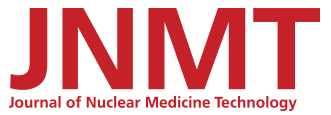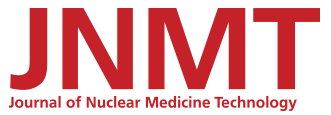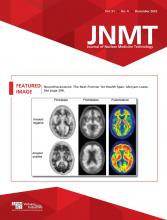TO THE EDITOR: ChatGPT (OpenAI) systems have gained prominence in various health-care domains, including nuclear medicine. These advanced chatbot systems offer several advantages, such as enhanced patient education, improved accessibility to medical information, streamlined workflows, and augmented research and development. However, it is important to consider the potential disadvantages of using ChatGPT in nuclear medicine, including concerns about accuracy, ethical considerations, patient–provider communication, and the impact on human expertise. We would like to explore both the advantages and the disadvantages to provide a comprehensive understanding of the implementation of ChatGPT in nuclear medicine.
ADVANTAGES
Enhanced Patient Education
ChatGPT systems provide a valuable tool for enhancing patient education in nuclear medicine. These systems can offer accurate and detailed information about procedures, imaging techniques, and treatment options. Patients can engage in conversational interactions with the chatbot, asking questions and receiving tailored responses in real time, that empower patients to better understand their condition, make informed decisions, and actively participate in their own health care. Improved health literacy leads to better compliance, increased patient satisfaction, and optimized treatment outcomes.
Improved Accessibility to Medical Information
ChatGPT systems play a pivotal role in improving accessibility to medical information, particularly in remote or underserved areas. These systems offer on-demand access to accurate and up-to-date medical knowledge, allowing patients and health-care professionals to interact easily through various devices. Patients can seek preliminary advice, inquire about symptoms, and learn about available diagnostic tests and treatment options. The accessibility of ChatGPT systems empowers individuals to make informed decisions and seek appropriate medical care, even in resource-constrained settings.
Streamlined Workflows
Integrating ChatGPT systems in nuclear medicine can streamline workflows and improve efficiency within health-care settings. These systems can automate routine tasks such as appointment scheduling, medication reminders, and postprocedure follow-ups. By automating these processes, ChatGPT systems free up health-care professionals’ time, enabling them to focus on critical tasks that require their expertise. Additionally, ChatGPT systems can assist in triaging patients and prioritizing care, optimizing resource allocation and reducing wait times. Integration with electronic health record systems facilitates seamless information exchange and comprehensive patient assessments, enhancing the accuracy and efficiency of nuclear medicine practice (1).
Augmented Research and Development
ChatGPT systems have the potential to significantly contribute to research and development efforts (2) in nuclear medicine. These systems assist researchers in accessing and analyzing vast amounts of medical literature, research papers, and clinical trials. By quickly extracting relevant information, identifying trends, and generating insights, ChatGPT systems expedite the research process and support evidence-based practice. Furthermore, these systems aid in the identification of potential research subjects and participants for clinical trials, facilitating recruitment and enrollment processes. ChatGPT systems foster collaboration among researchers, enabling seamless information exchange and real-time discussions, thereby advancing nuclear medicine and improving patient outcomes.
DISADVANTAGES
Accuracy and Reliability
One of the primary concerns with ChatGPT systems in nuclear medicine is their accuracy and reliability. Although these systems are trained on extensive datasets, they may still produce inaccurate or misleading information. ChatGPT systems generate responses based on patterns in their training data, which may include outdated or erroneous information. Inaccuracies in diagnoses or treatment suggestions can have severe consequences for patient care. The lack of the ability to verify the source or credibility of information is another limitation, potentially leading to reliance on incorrect or unsubstantiated recommendations from these systems.
Ethical Considerations
The use of ChatGPT systems in nuclear medicine raises ethical considerations that need careful examination. These systems collect and store large amounts of patient data, including sensitive health information (3). Ensuring the privacy and security of patient data is crucial, as any breaches could lead to identity theft and harm to patients. Additionally, determining liability when the system provides inaccurate or inappropriate advice poses legal and ethical challenges. Health-care professionals must exercise caution and not rely solely on the recommendations of ChatGPT systems, taking ultimate responsibility for patient care.
Patient–Provider Relationship and Communication
The introduction of ChatGPT systems in nuclear medicine may impact the patient–provider relationship and communication. Although these systems can provide basic information and answer common questions, they lack the ability to establish rapport and demonstrate empathy—the essential elements of patient-centered care. Patients may feel more comfortable interacting with human health-care professionals who can understand their emotions, address their concerns, and provide personalized care. Moreover, reduced face-to-face interactions may hinder the ability to obtain a comprehensive medical history, conduct physical examinations, and establish a trusting relationship. The absence of nonverbal cues and the inability to ask follow-up questions may limit the depth of understanding and compromise the quality of care provided.
Reliance on Technology and Human Expertise
An overreliance on ChatGPT systems in nuclear medicine may inadvertently devalue the importance of human expertise. Although these systems can provide valuable insights and assist in decision-making, they should not replace the skills, knowledge, and experience of health-care professionals. Nuclear medicine is a complex and rapidly evolving field that requires specialized training and clinical judgment. It is essential to recognize the limitations of ChatGPT systems and ensure that they are used as tools to support, rather than replace, health-care professionals. Furthermore, overdependence on technology may diminish critical thinking and problem-solving skills among health-care professionals, potentially compromising the overall quality of care.
We would like to conclude by pointing out that ChatGPT systems in nuclear medicine provide notable benefits such as better patient education, accessible medical information, streamlined workflows, and advanced research. However, it is important to address issues of accuracy, reliability, ethics, patient–provider communication, and the potential reduction of human expertise to maximize the advantages while ensuring high-quality, patient-centered care.
Jasim Jaleel, Sambit Sagar, Rakesh Kumar*
*All India Institute of Medical Sciences, New Delhi, India
E-mail: rkphulia{at}yahoo.com
Footnotes
Published online Oct. 18, 2023.
- Received for publication May 25, 2023.
- Revision received July 25, 2023.







